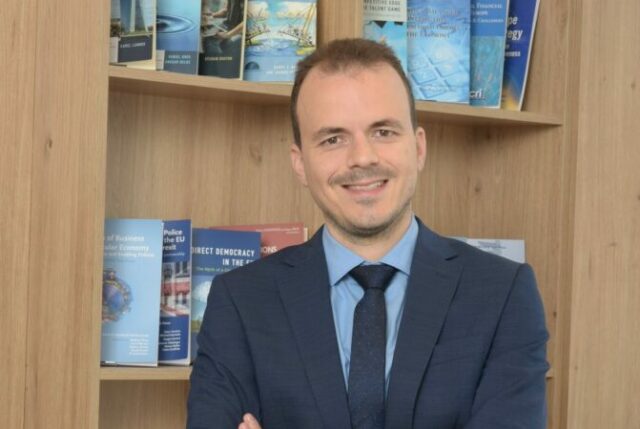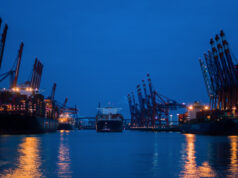brief INTERVIEW with Vasileios Rizos, Research Fellow and Head of Sustainable Resources and Circular Economy at CEPS (Centre for European Policy Studies). For further expert opinions please use the question-level hyperlink.
| How has the COV-19 crisis affected companies implementing green business models and how could companies react under the current situation?
The COV-19 crisis has had a major impact on companies across various sectors and this obviously includes companies implementing green and/or circular business models. Our current research focused on the electrical and electronic equipment value chain shows that companies face a multitude of effects depending on the nature of their green business model. For example, some companies could not collect for some time old devices for refurbishment or recycling, while others have been impacted by severe supply chain disruptions. There are also cases of companies that wait to see whether the drop in the demand for their products or services will be permanent in order to re-design their operations if necessary. At the same time, some companies experienced an increased demand for specific products (e.g. refurbished laptops and health equipment), while others have noticed a higher consumer interest in their ‘green’ business model although it remains to be seen if this will be a long-lasting effect.
It is likely that the crisis may accelerate trends that have been already well underway and companies should carefully monitor these changes in the market. One prominent example is online sales; recent data that we have collected indicate that many companies have already started re-thinking the way of offering their green product or services. This extends beyond selling the product as creating a digital interaction directly with a client may in turn create opportunities for better managing products over their entire lifecycle.
| What actions do you find relevant to make the recovery as resilient as possible?
I would like to narrow down this question to the impacts of COV-19 on supply chains and businesses in Europe and beyond. As explained earlier, various companies have experienced supply chains disruptions ranging from increased cost of air shipping, difficulties in accessing components and decreased demand for their products. The feedback that we receive from companies implementing circular and green business models also suggests that some of their suppliers have now started becoming more responsive to sustainability concerns. Although it is too early to draw any definite conclusions about the scale of these impacts, it seems that these current trends may change or even reshape in some cases supply chains. In view of these impacts, companies can take action to increase resilience, such as re-arrange their stocks of products and components, diversify their supplier base and increasingly explore regional supply chains. When making these decisions it is important that they look into the full supply chain rather than just the next entity or level. Some companies may also be inclined to create for the first time risk plans in order to be able to respond to future disruptions in the market.
| Already back in 2017 scientists warned of what they termed ‘circular economy rebound’ arguing that ‘circular economy activities can increase overall production, which can partially or fully offset their benefits’. Against the backdrop of the sustainable recovery discussion in EU, do you find that the respective risks are properly considered?
There have been several pieces of research recently arguing that we should be cautious when it comes to the environmental benefits of circular economy approaches. Different aspects need to be taken into account in this respect. First, the scale of benefits of a circular process depend largely on whether it can actually replace primary production from virgin raw materials. Mobile phones represent one such example; research has shown that if refurbished phones do not replace sales of new devices the environmental benefits may not be as high as initially thought. In addition, although different circular processes such as reuse, refurbishment or recycling hold promise for providing significant environmental benefits when compared with traditional linear processes, one has to look into the impacts across all the products’ life cycle stages to identify the optimum solution from an environmental standpoint. In some cases there are also potential trade-offs; for instance, although bio-based materials may substitute for carbon-intensive basic materials and reduce demand for the latter there is still a debate on how this would affect demand for land use.
In other words, the discussion around the environmental benefits of the circular economy is complex and the understanding of the benefits associated with different options may change over time. With this in mind, risks can be minimised by adopting comprehensive recovery strategies that carefully assess the merits and demerits of various circular or green solutions rather than merely focusing on one option or technology.
| brief bio
Vasileios Rizos is a Research Fellow and Head of Sustainable Resources and Circular Economy at CEPS.
He is an expert in various aspects of the circular economy and analyses regulatory and market barriers to the adoption of circular economy practices in Europe and beyond.
Vasileios’ main research areas include circular economy policies, industrial sustainability, green value chains, low-carbon transport and resource efficiency indicators. He was co-chair of the Circular Economy Task Force of the Think20 (T20) network that supported G20 activities under the German presidency 2016-17. Between 2016 and 2018 he was the coordinator of the CEPS Task Force on the Role of Business in the Circular Economy that brought together executives from major multinational companies as well as representatives of NGOs and research institutes.
Previously Vasileios worked in DG Environment at the European Commission and the Confederation of European Paper Industries (CEPI). He is the lead author of several publications on circular business innovation and policy instruments that can encourage the green market transition.








